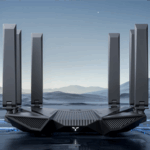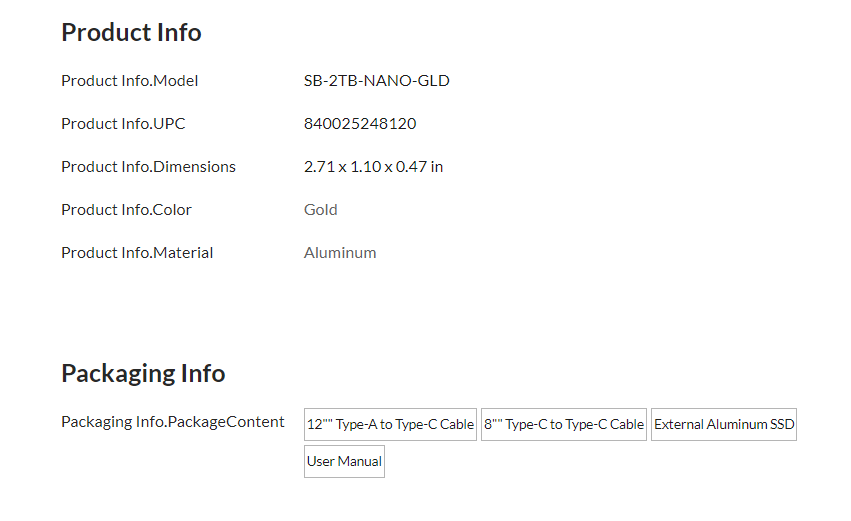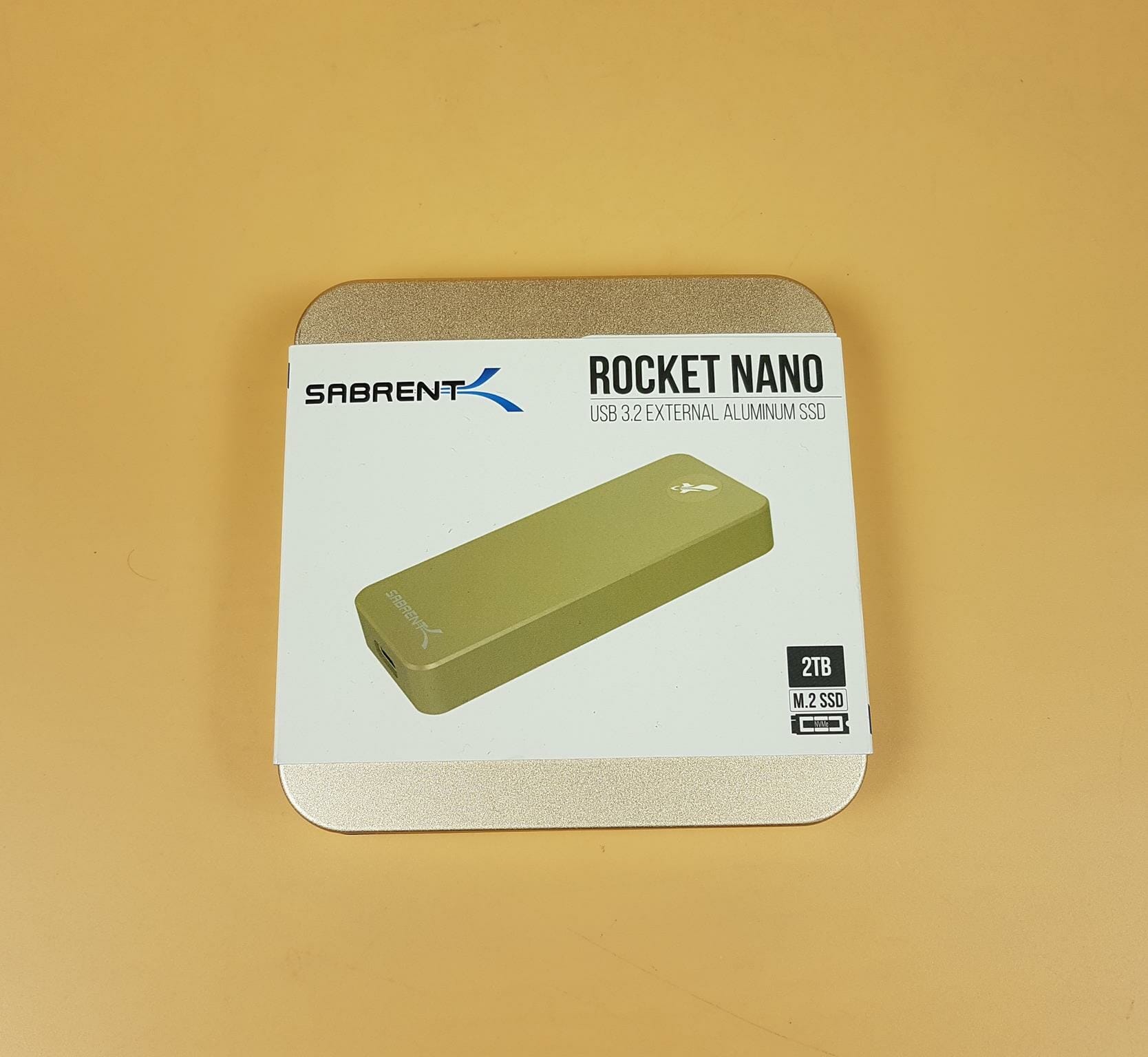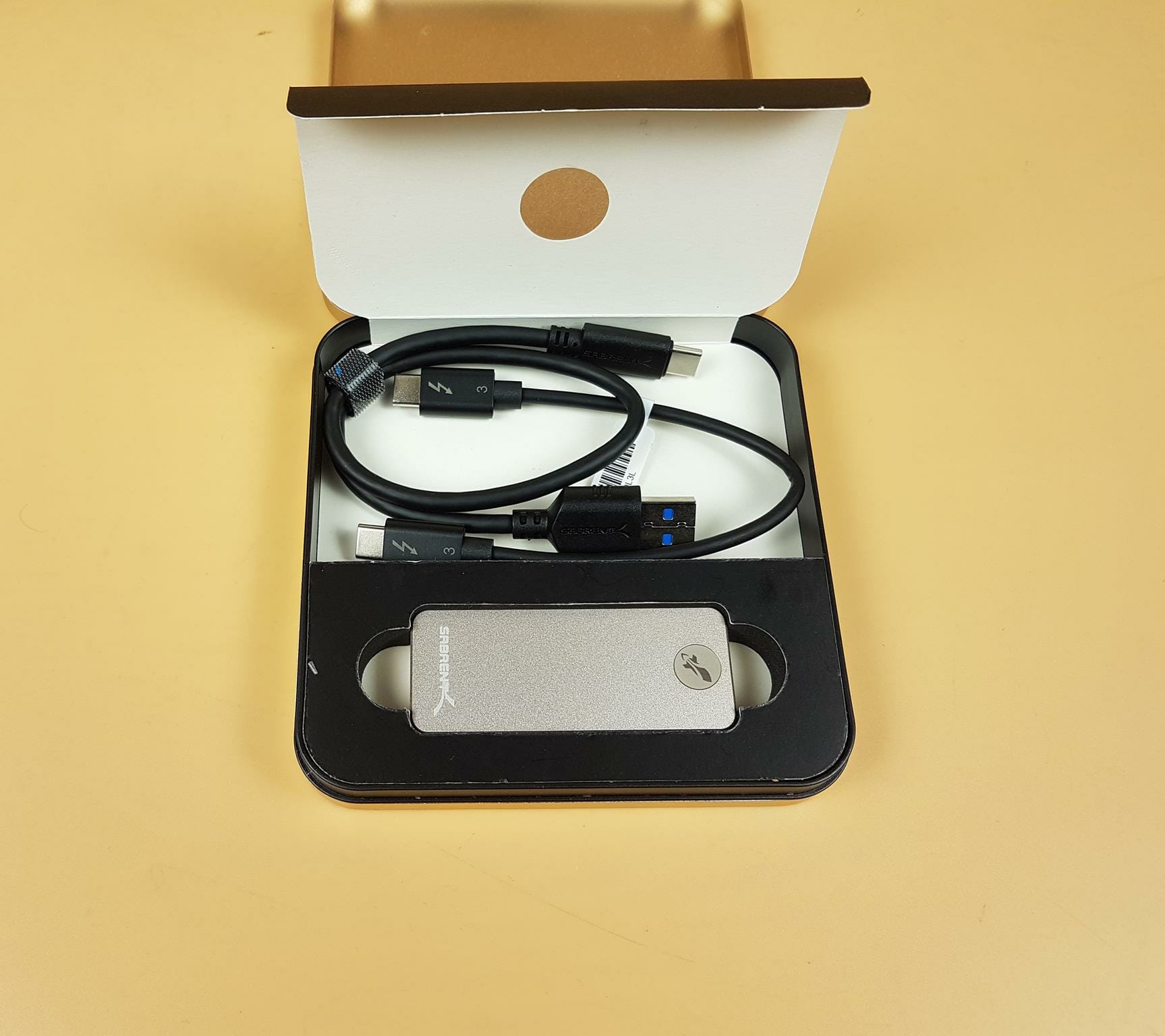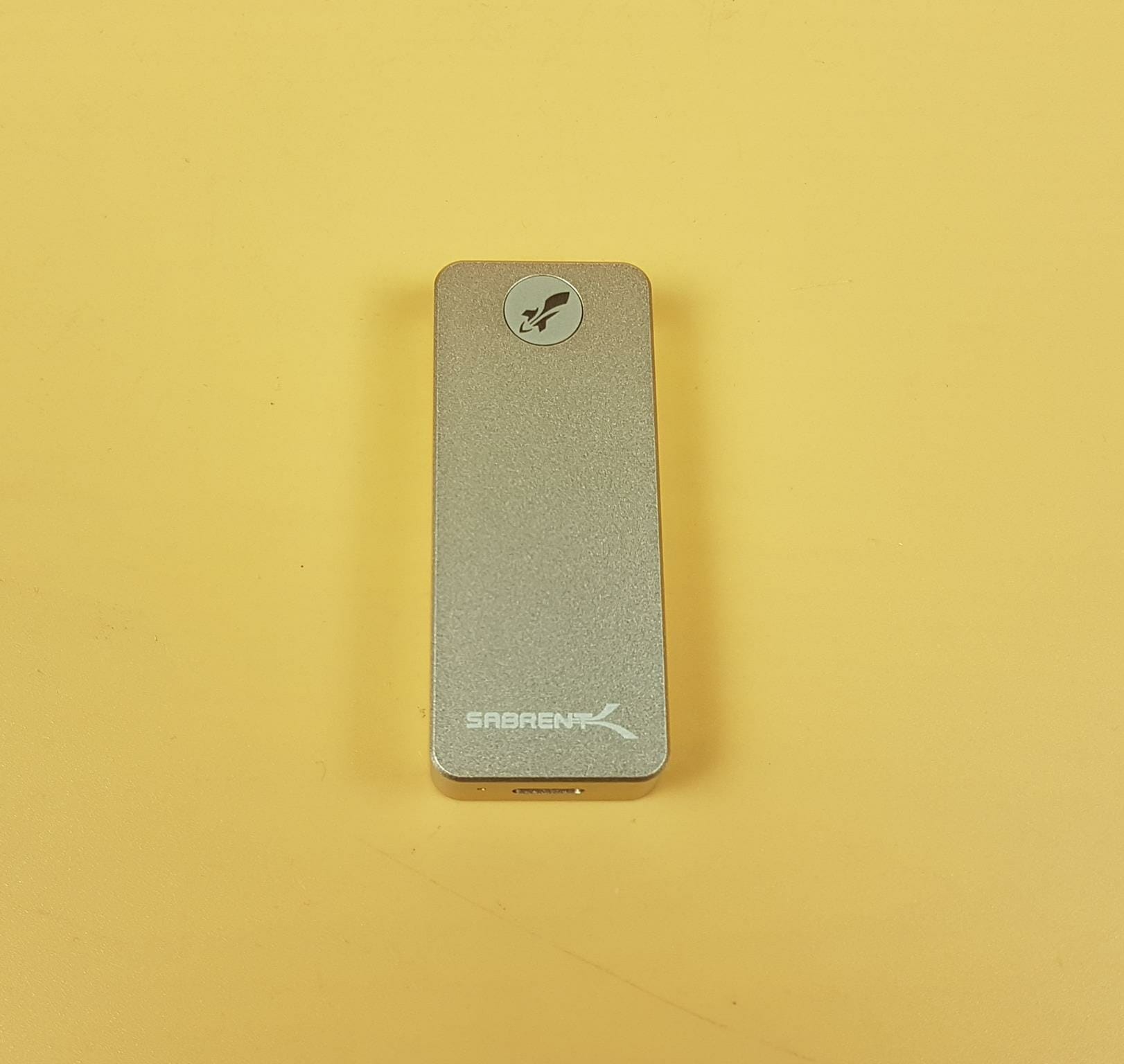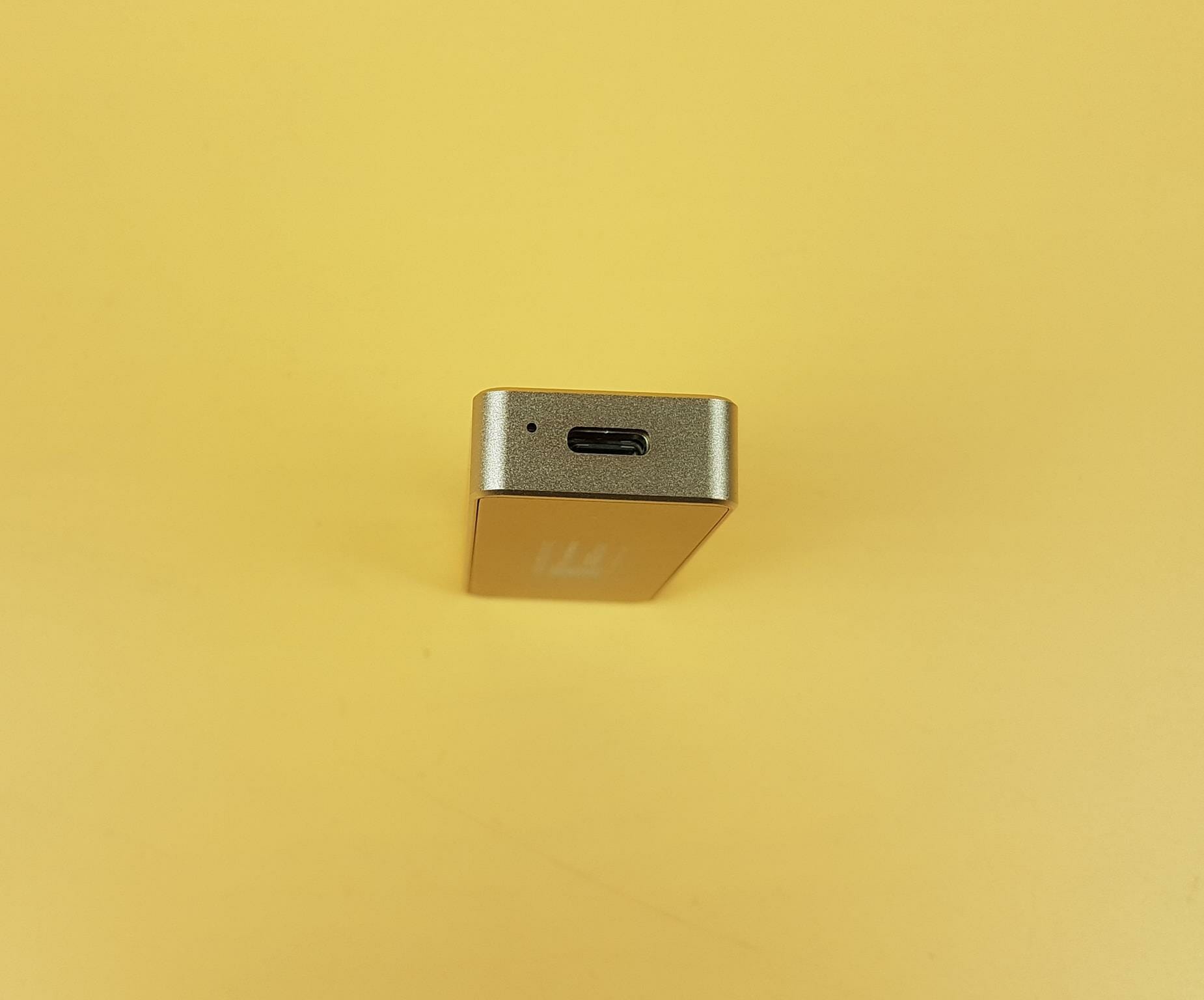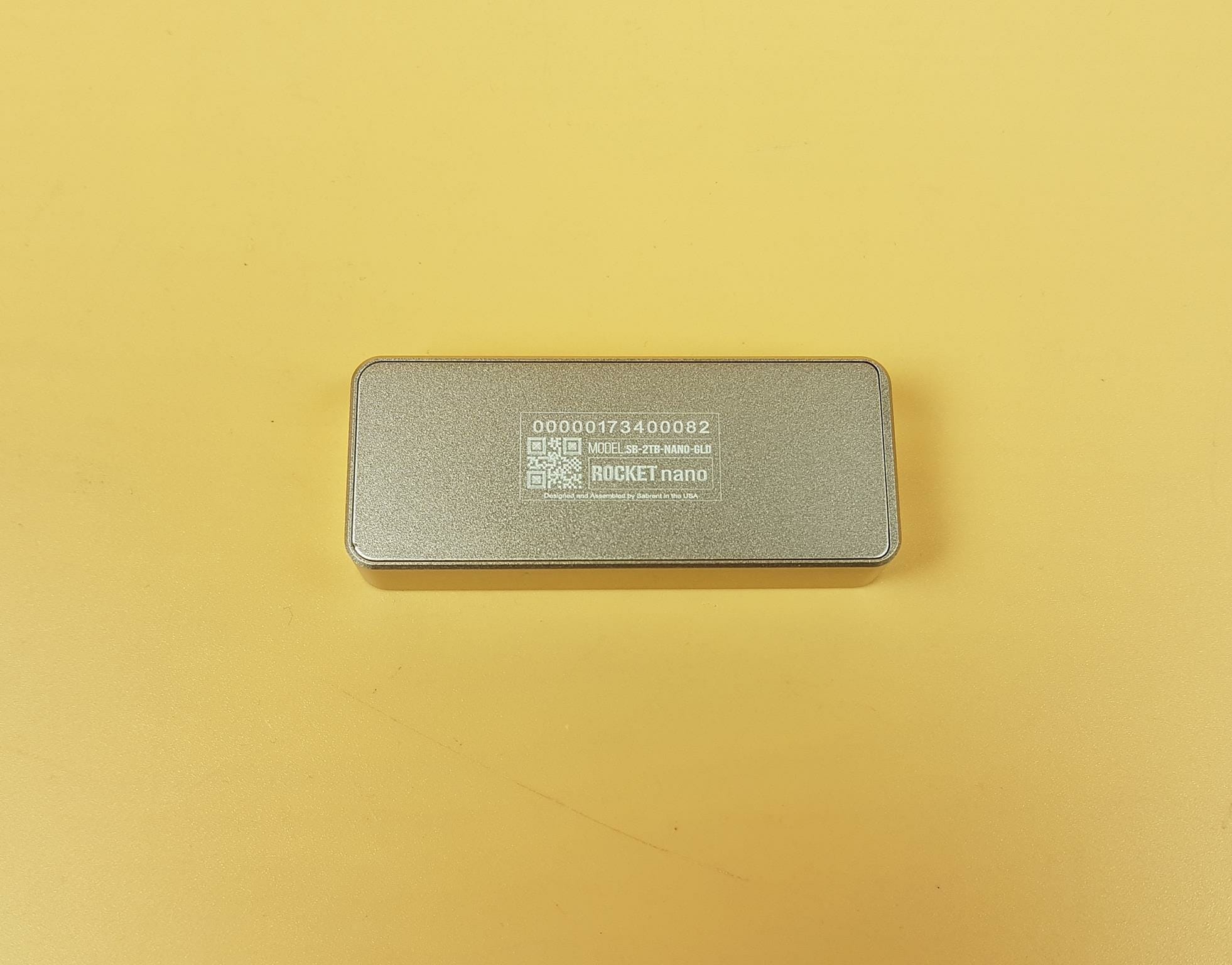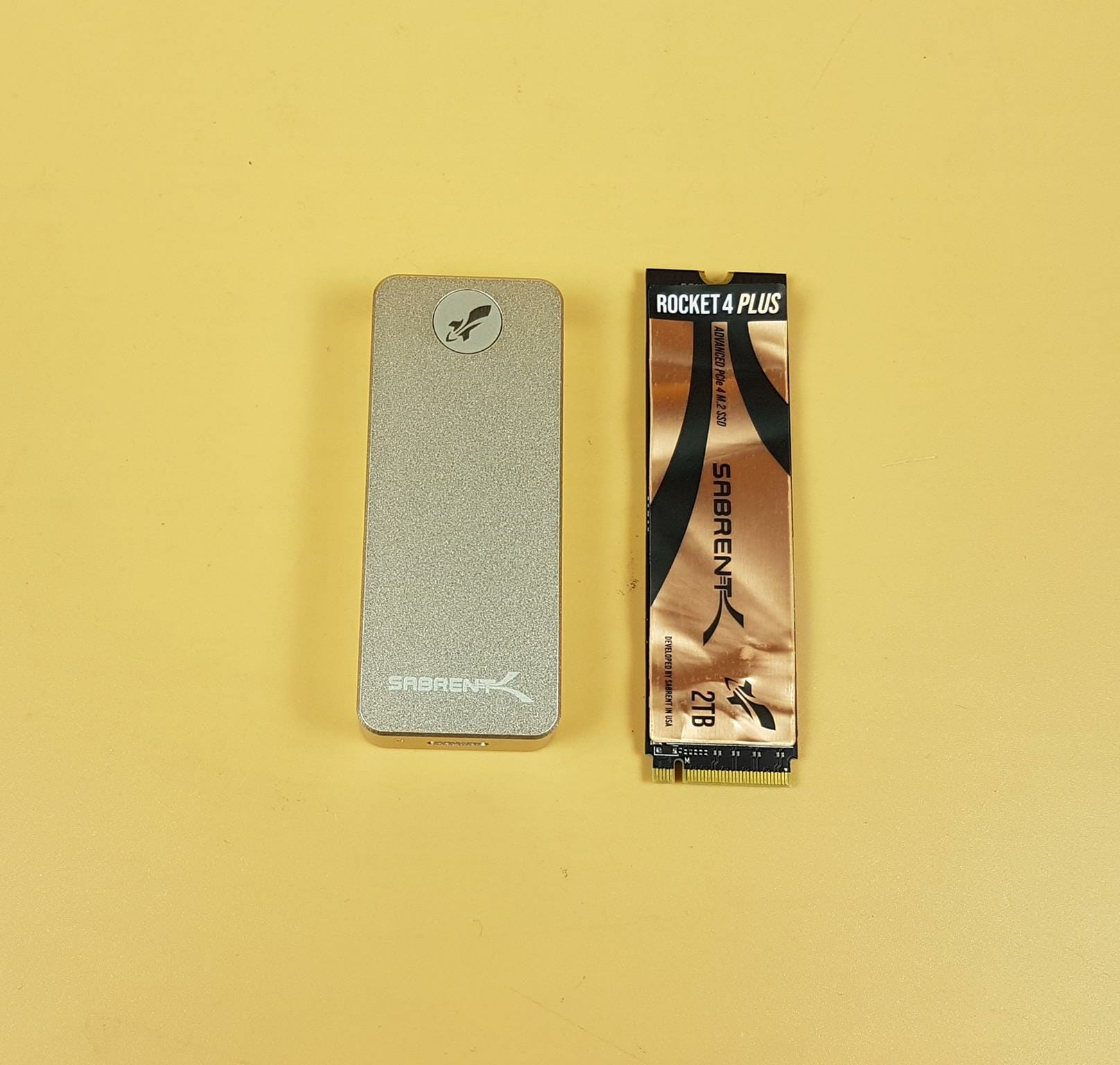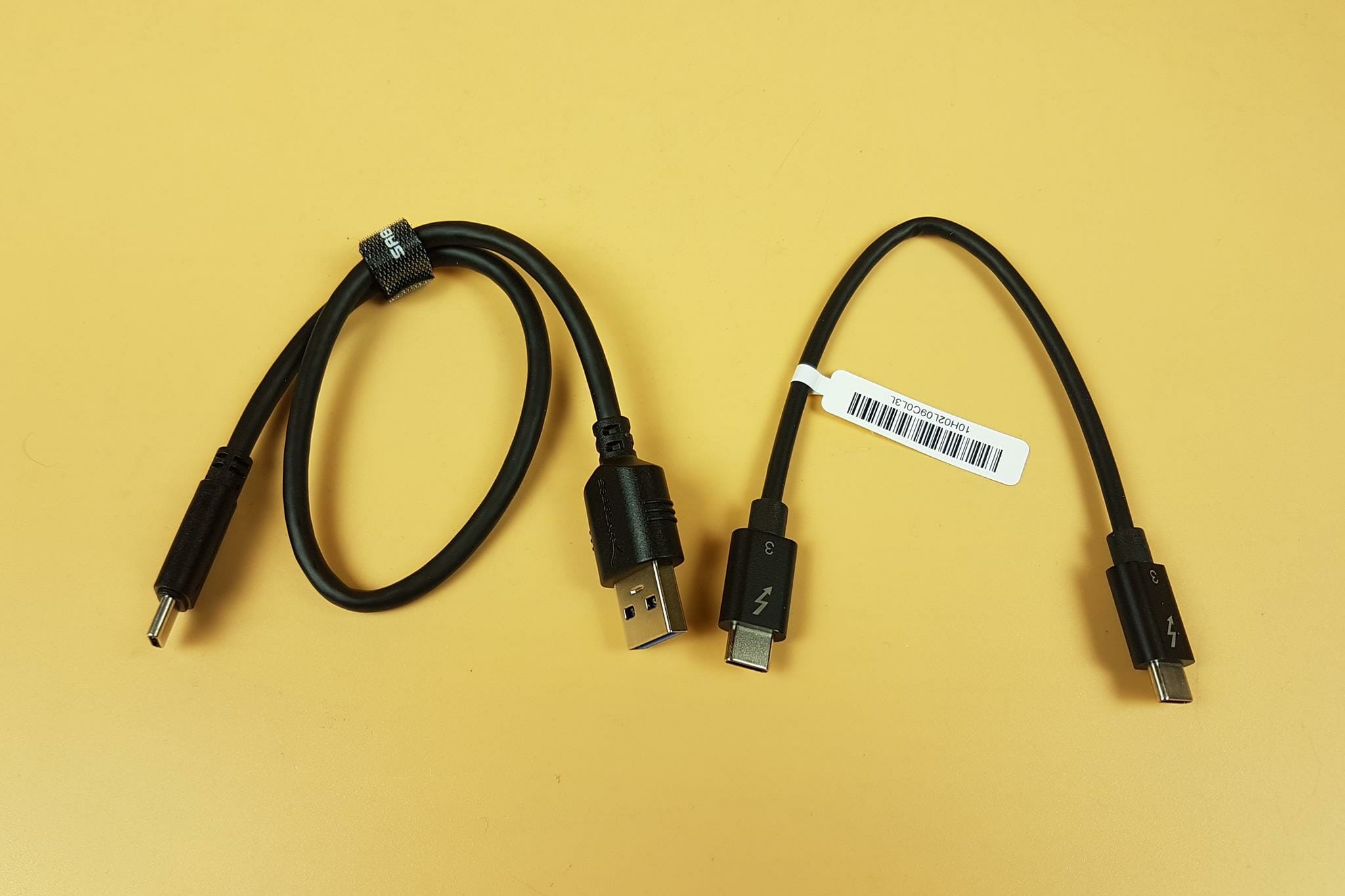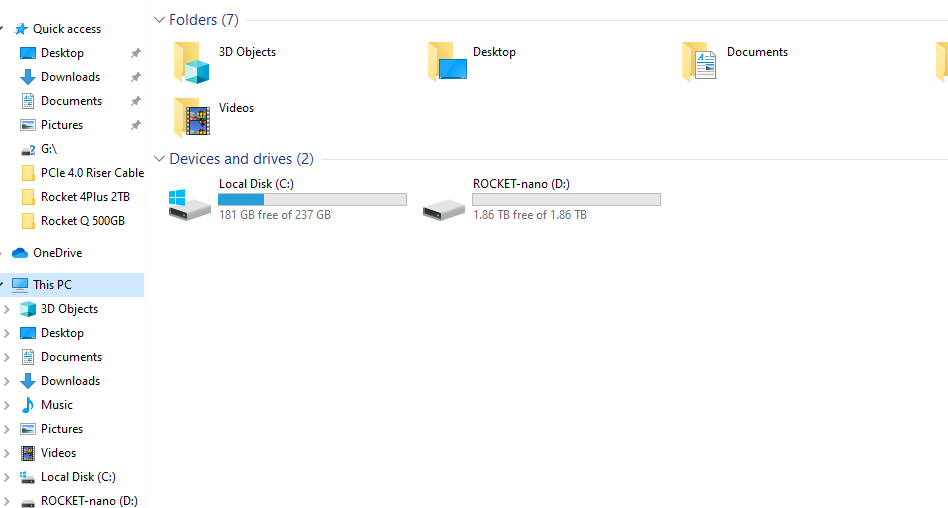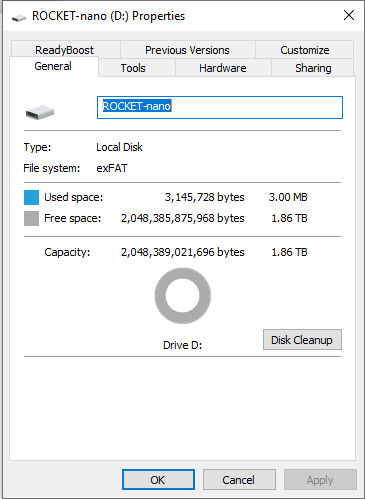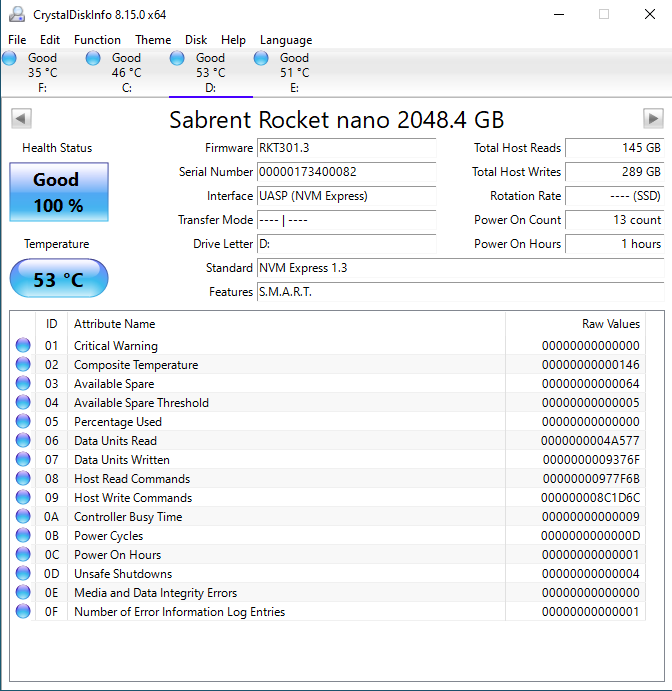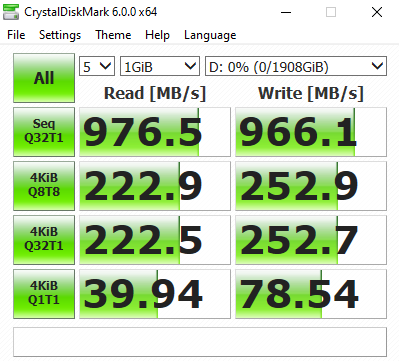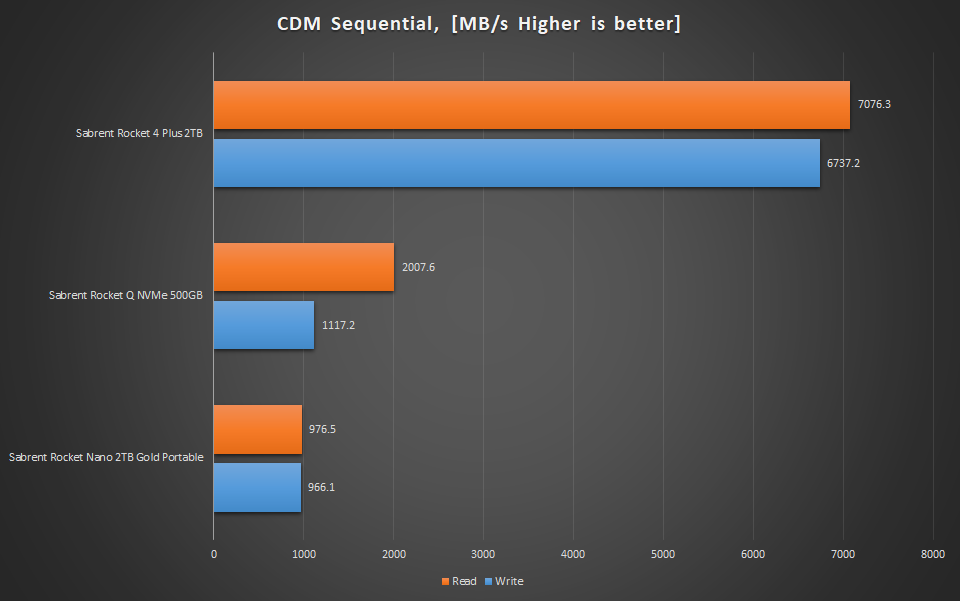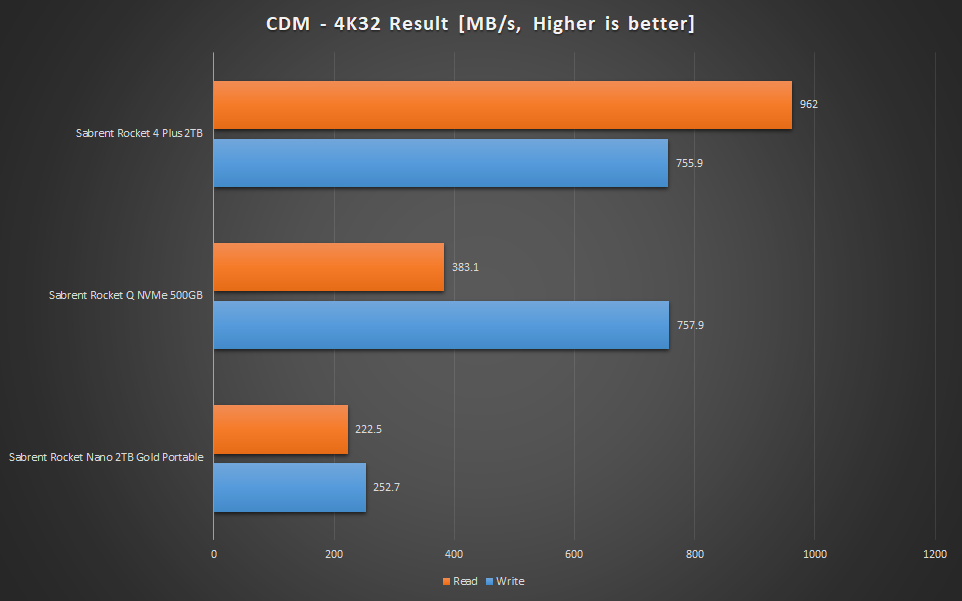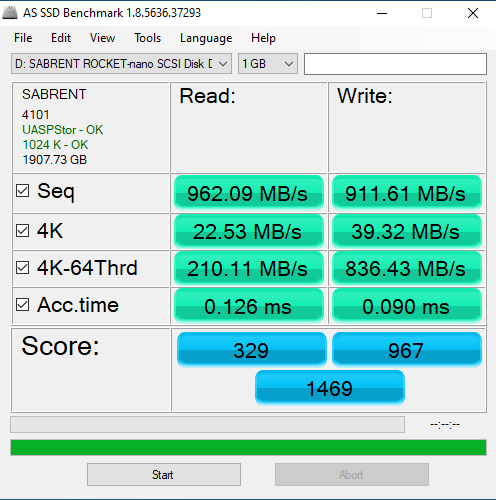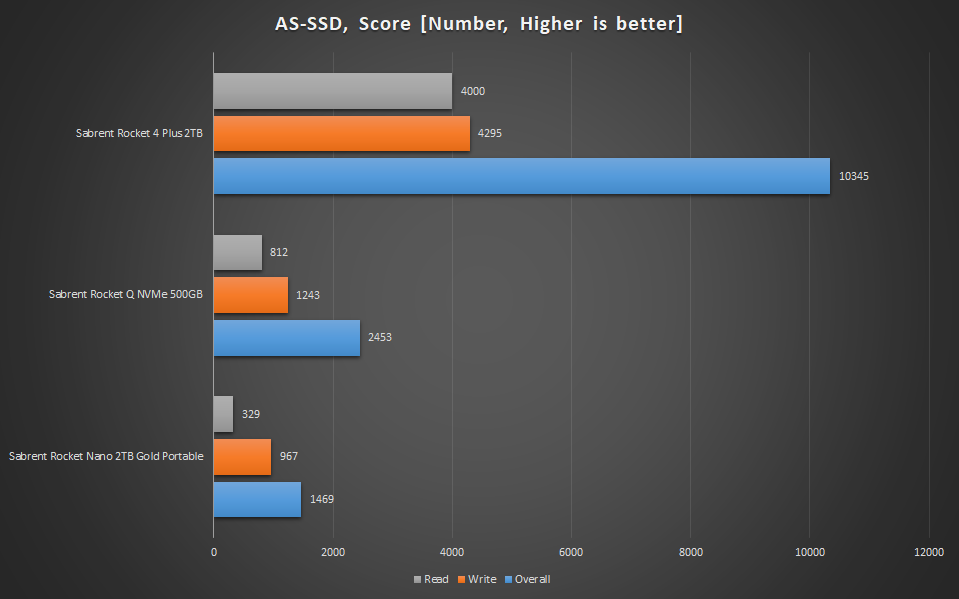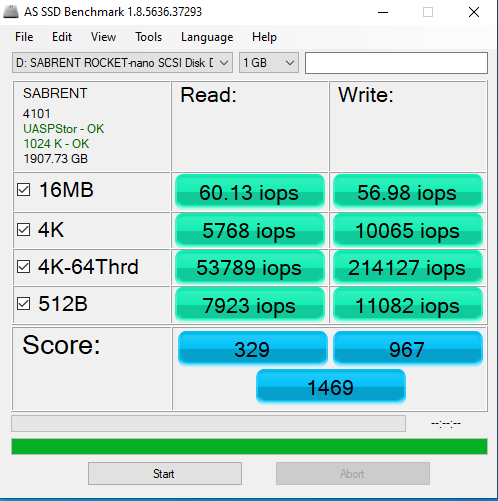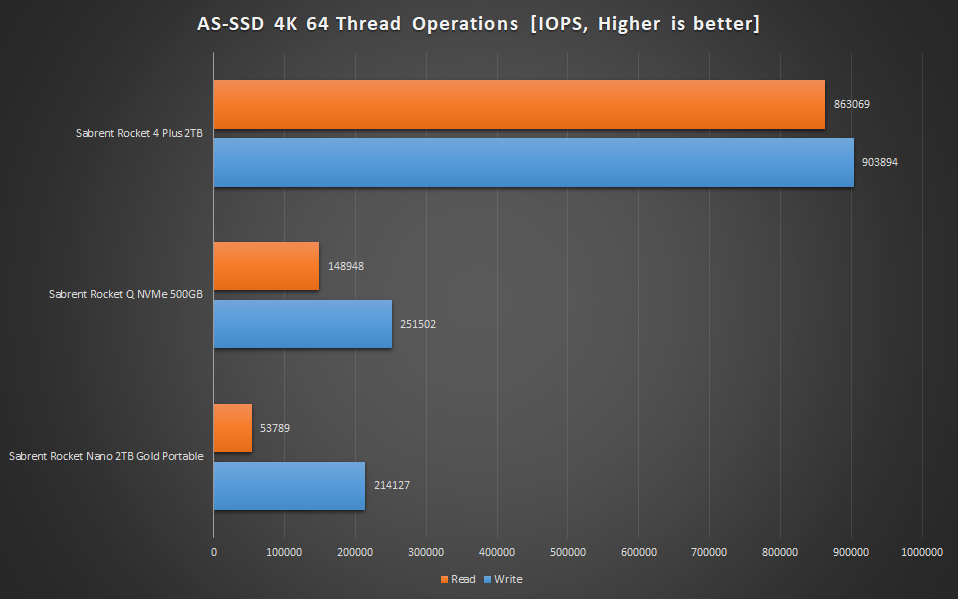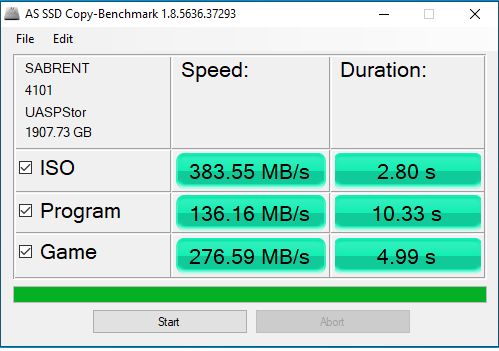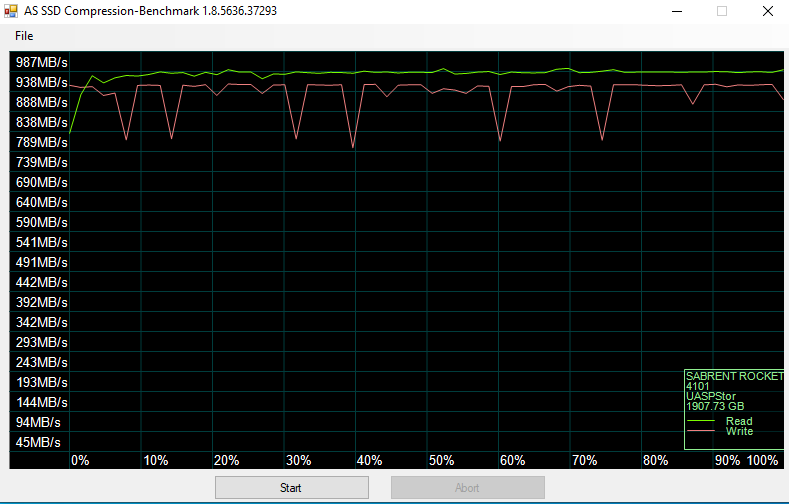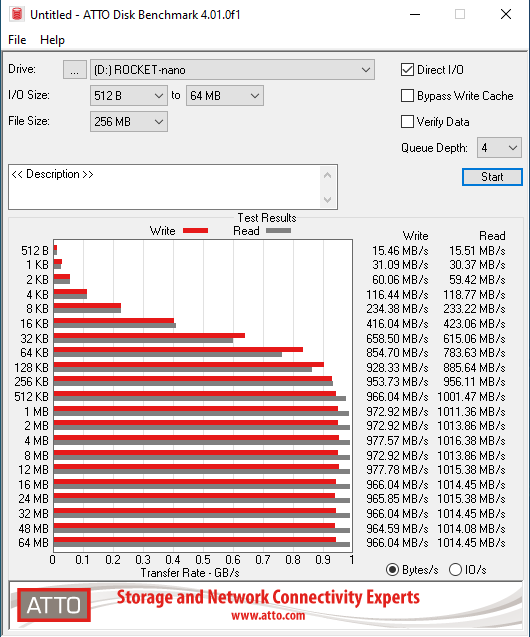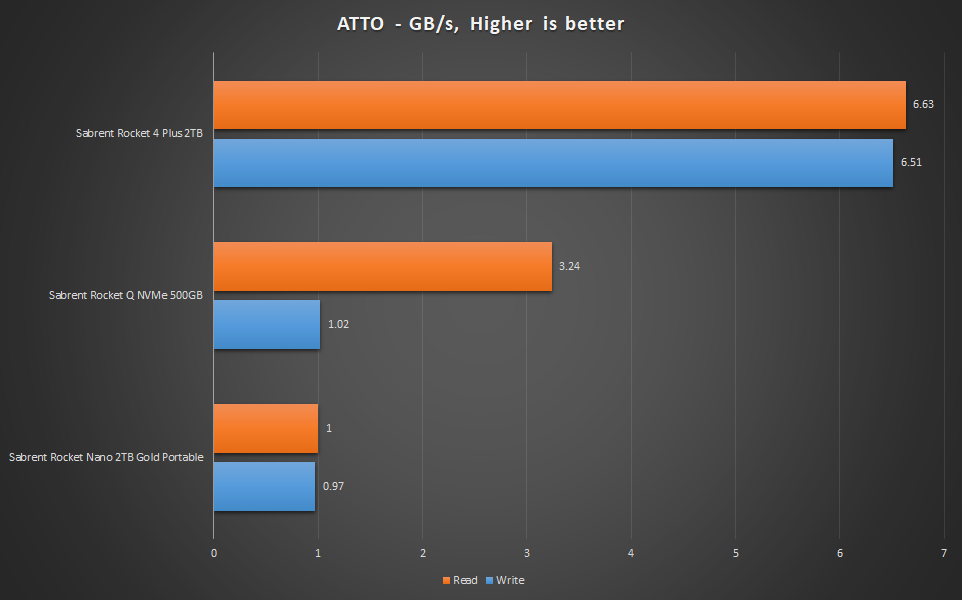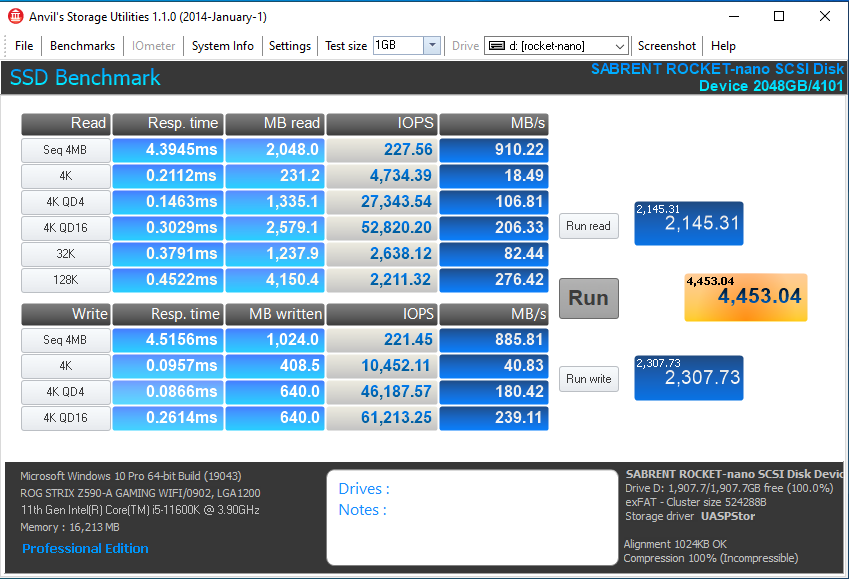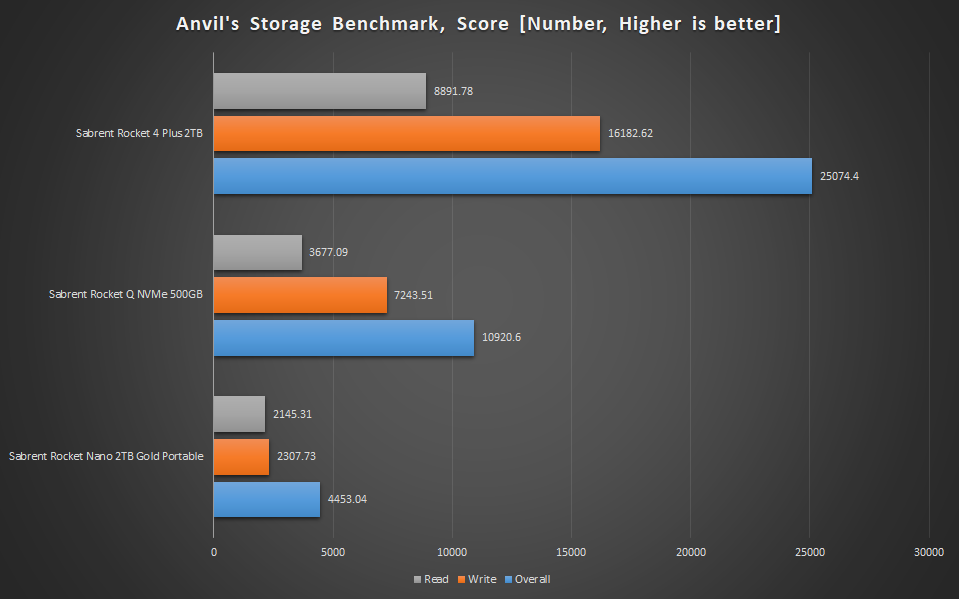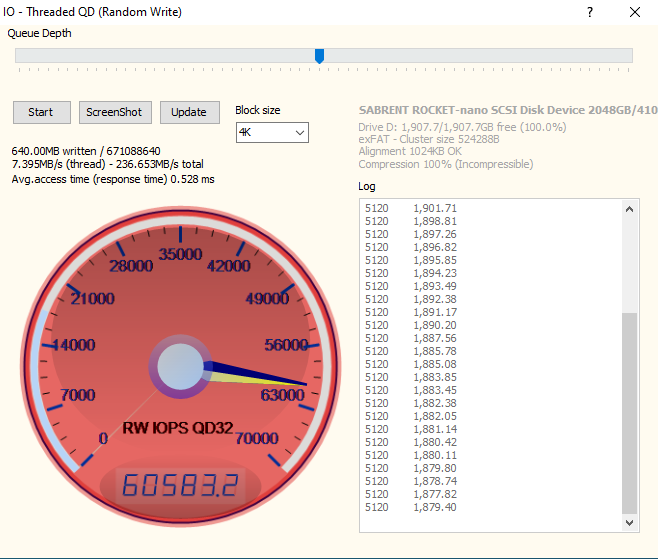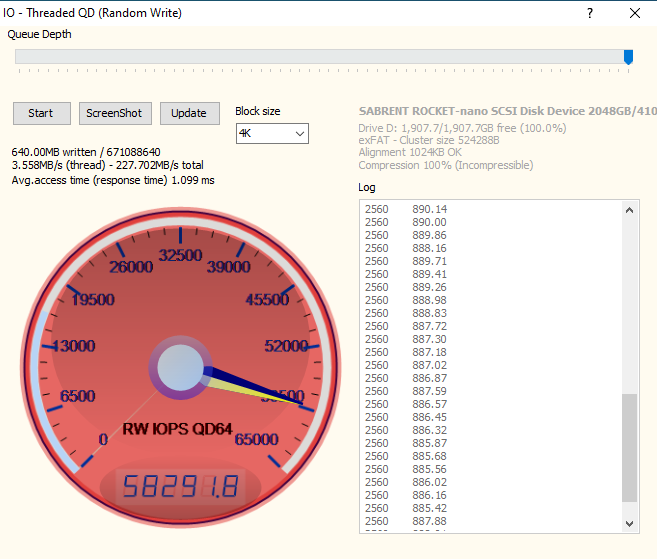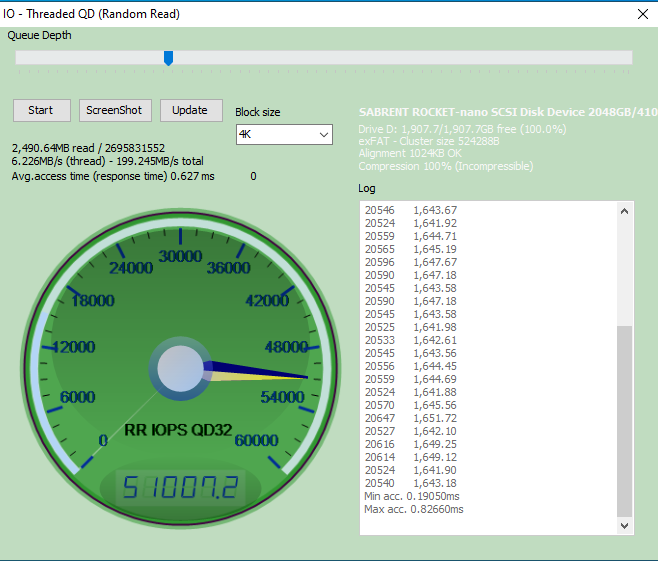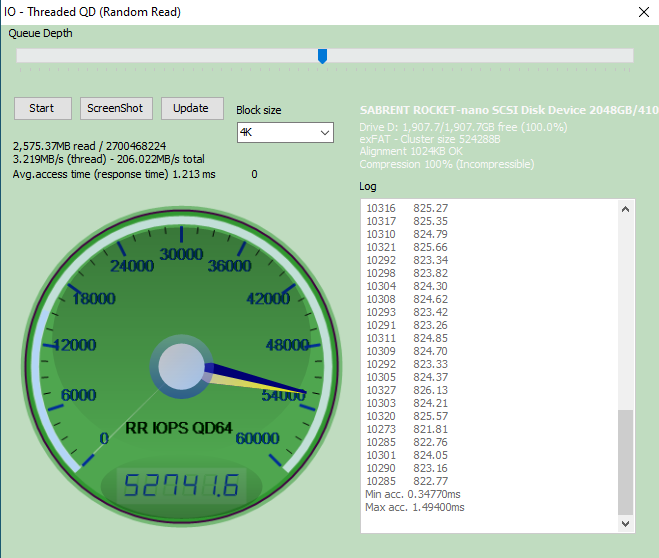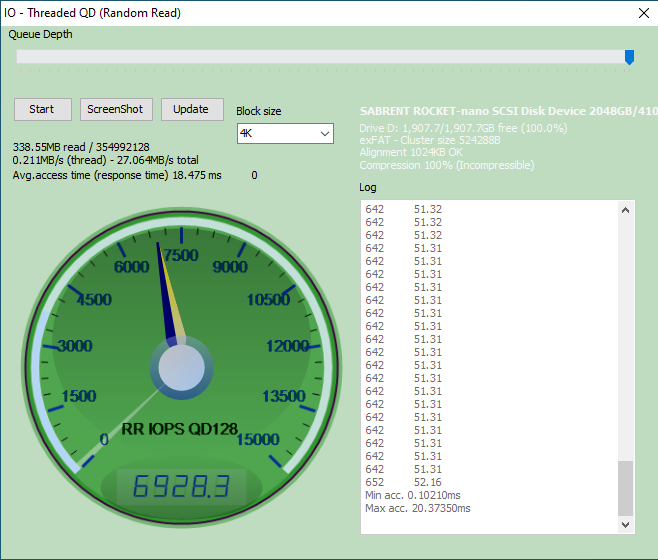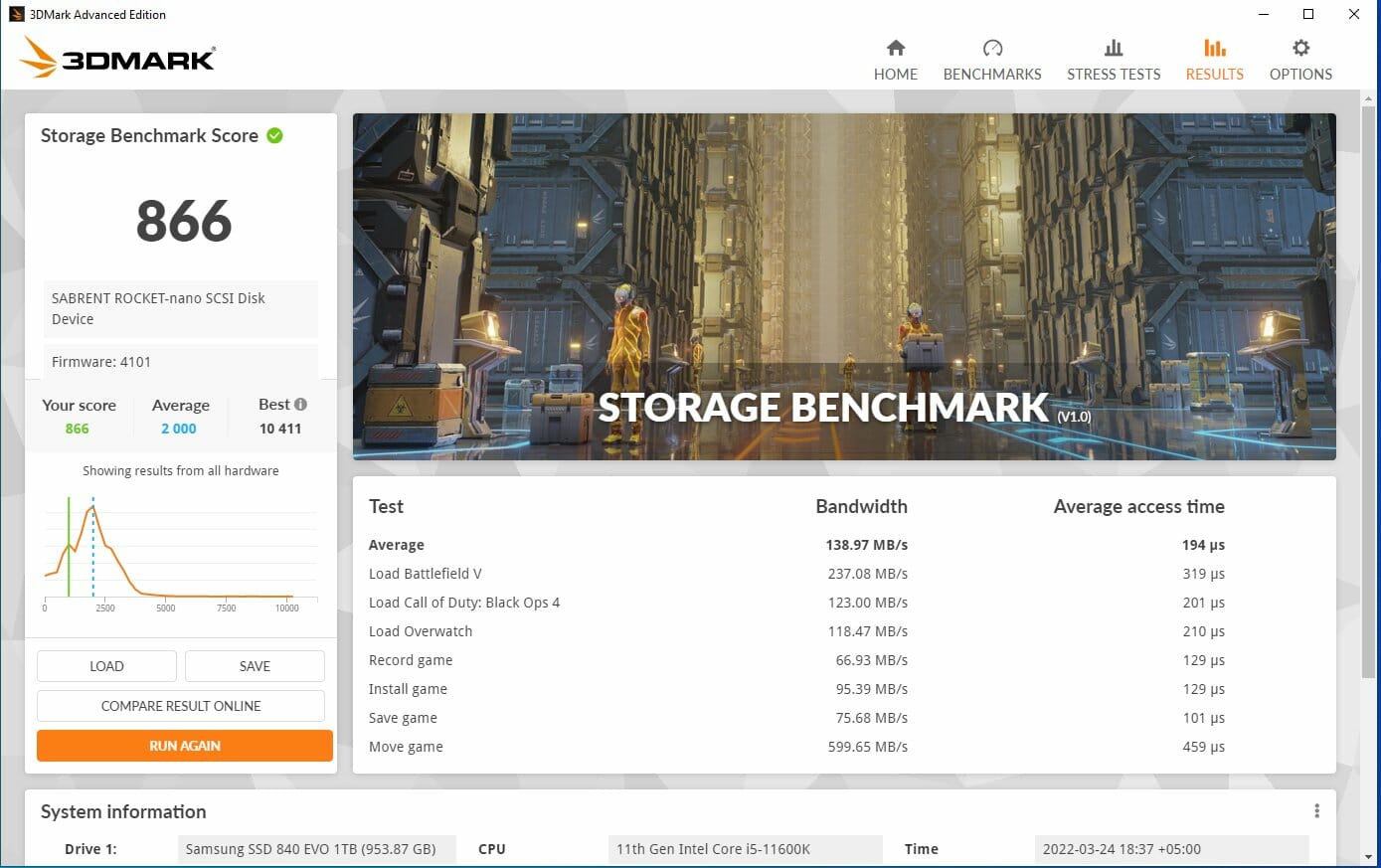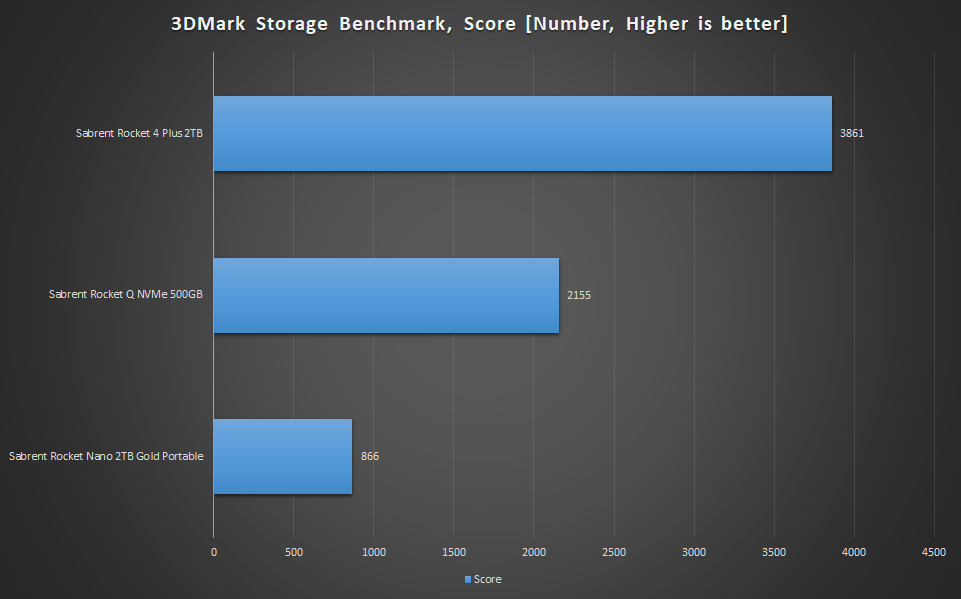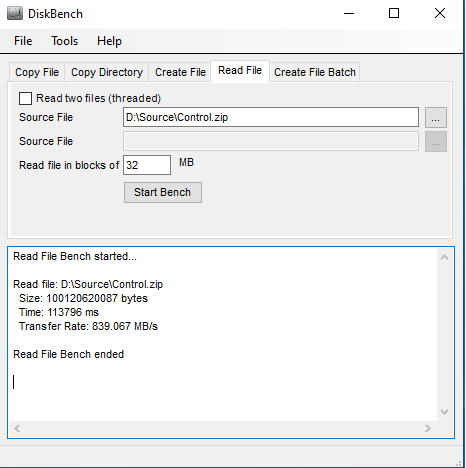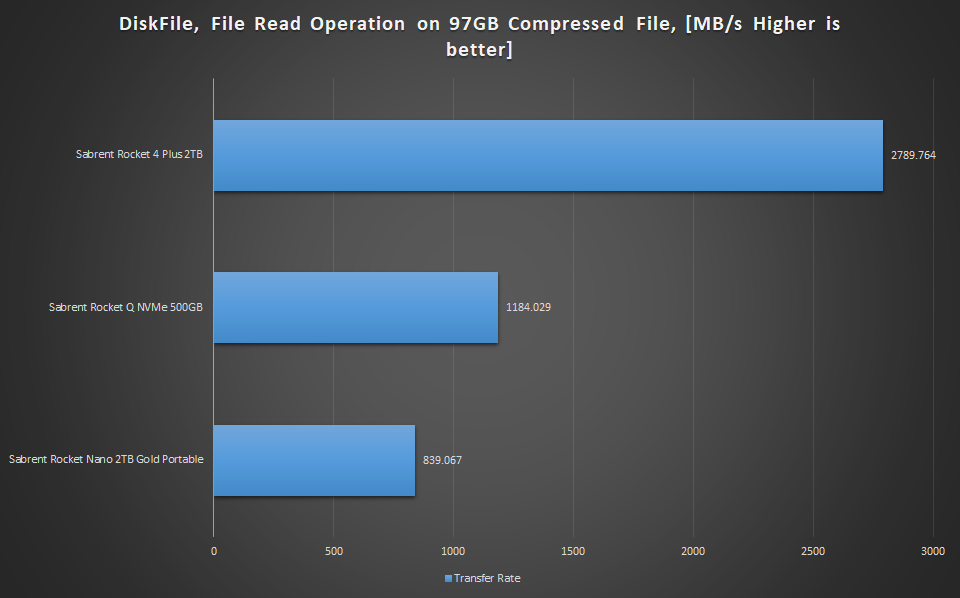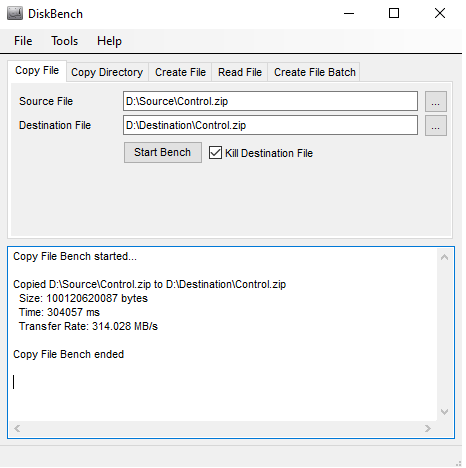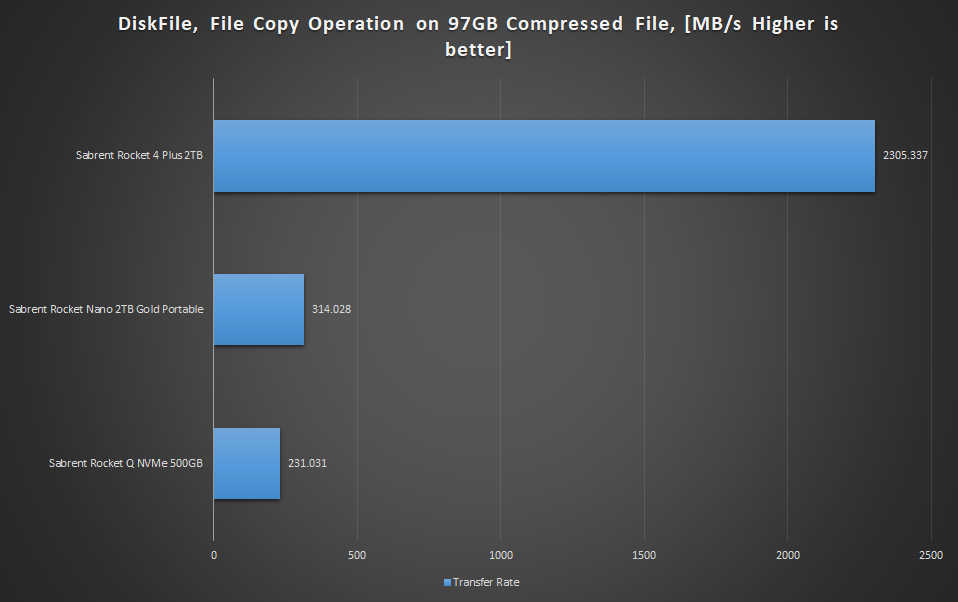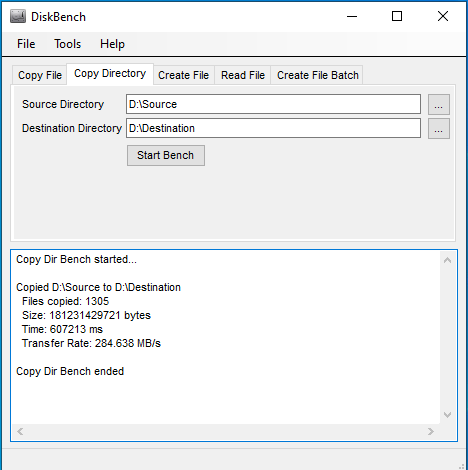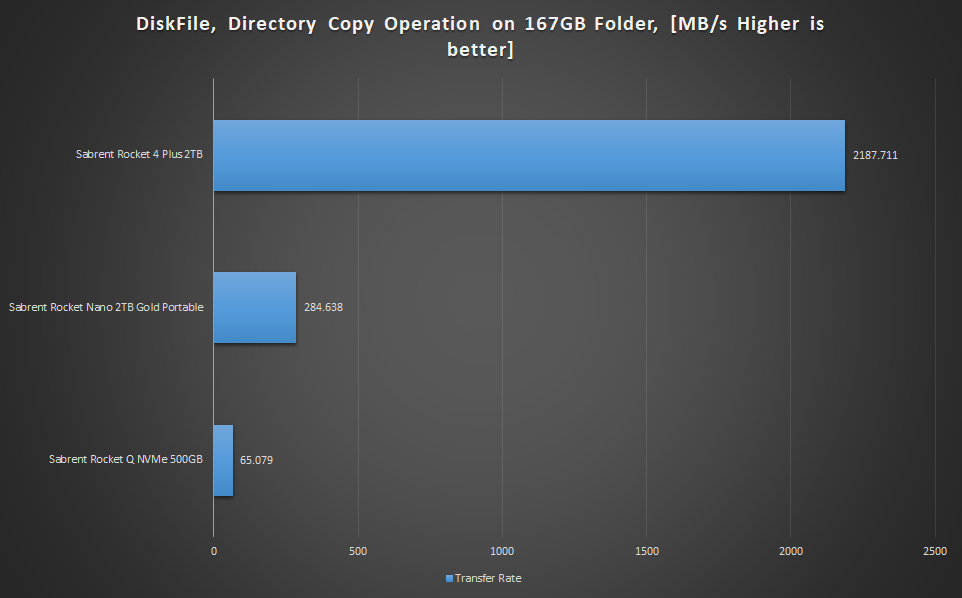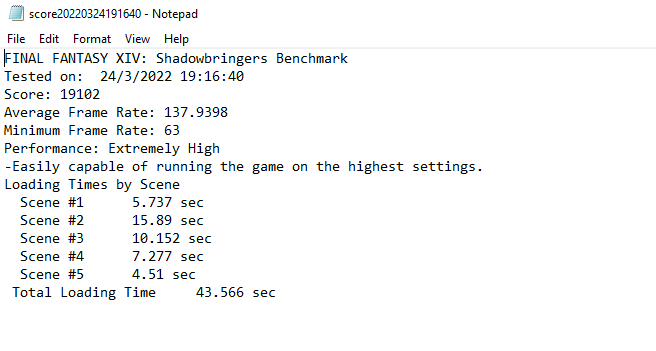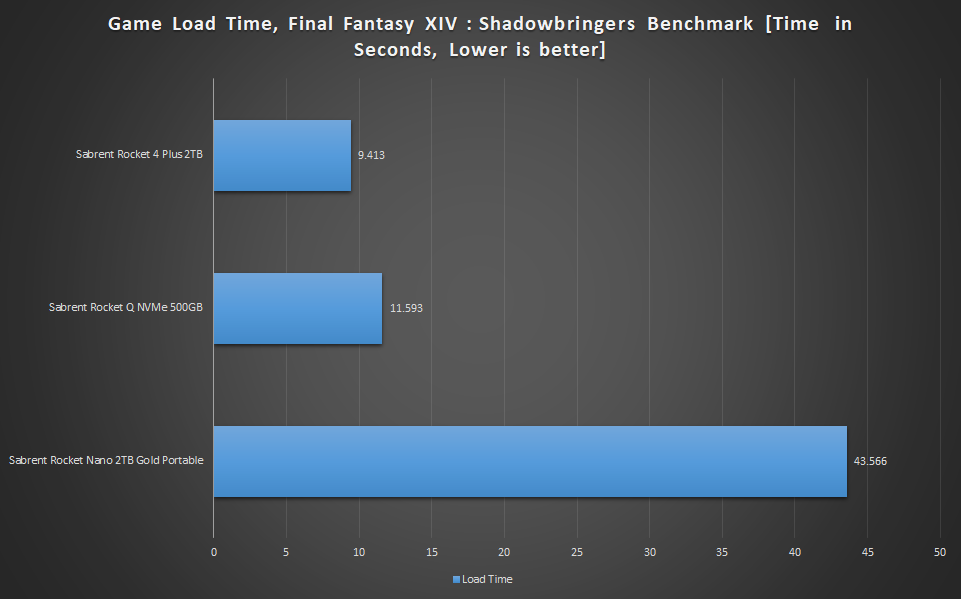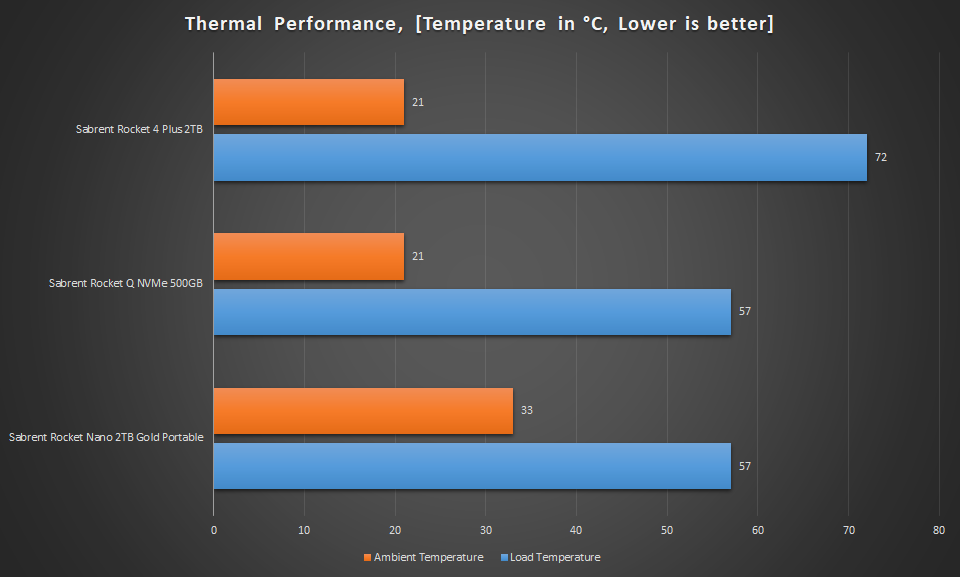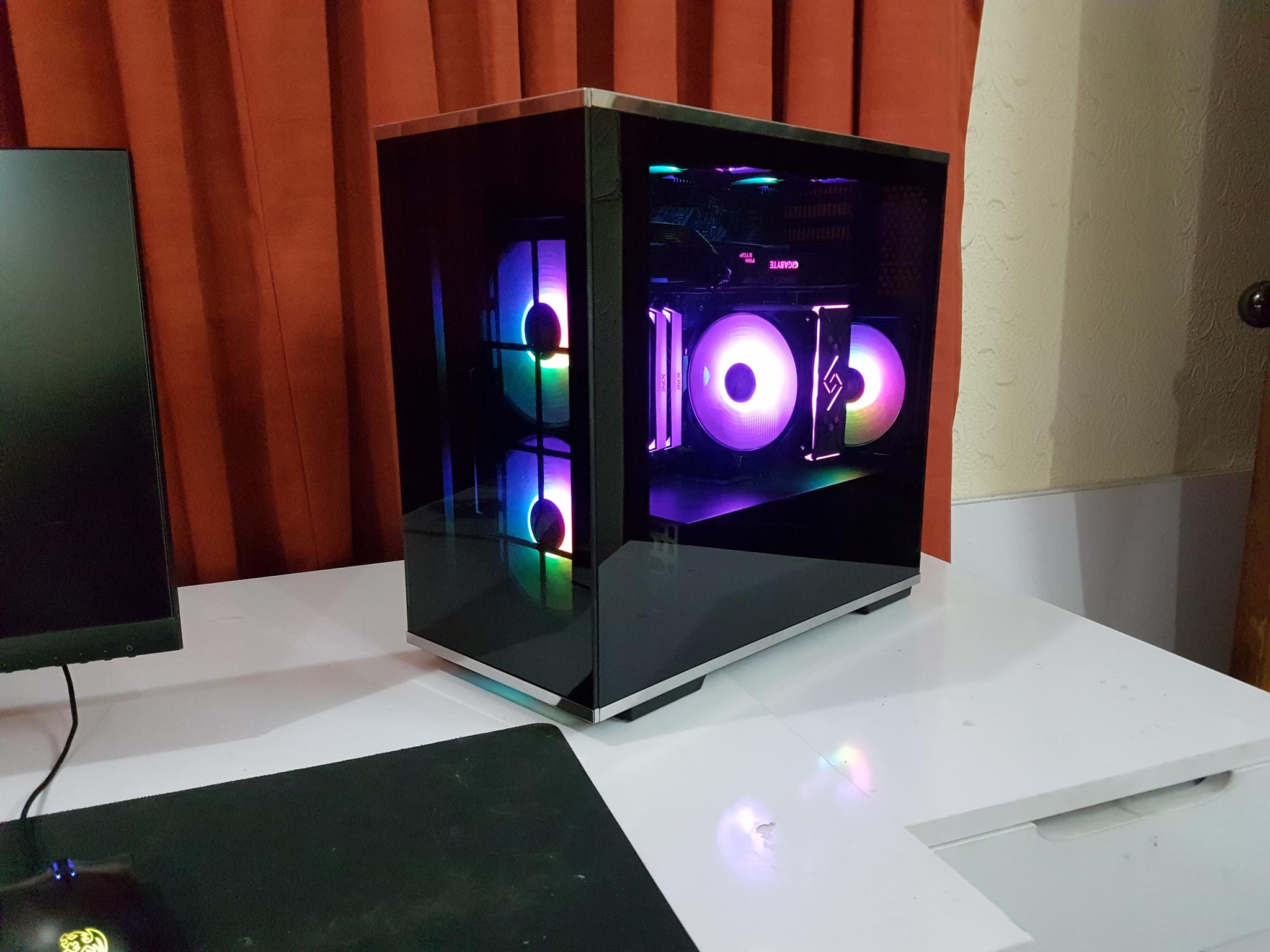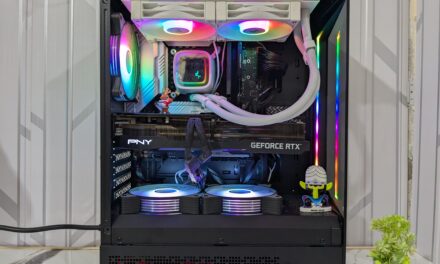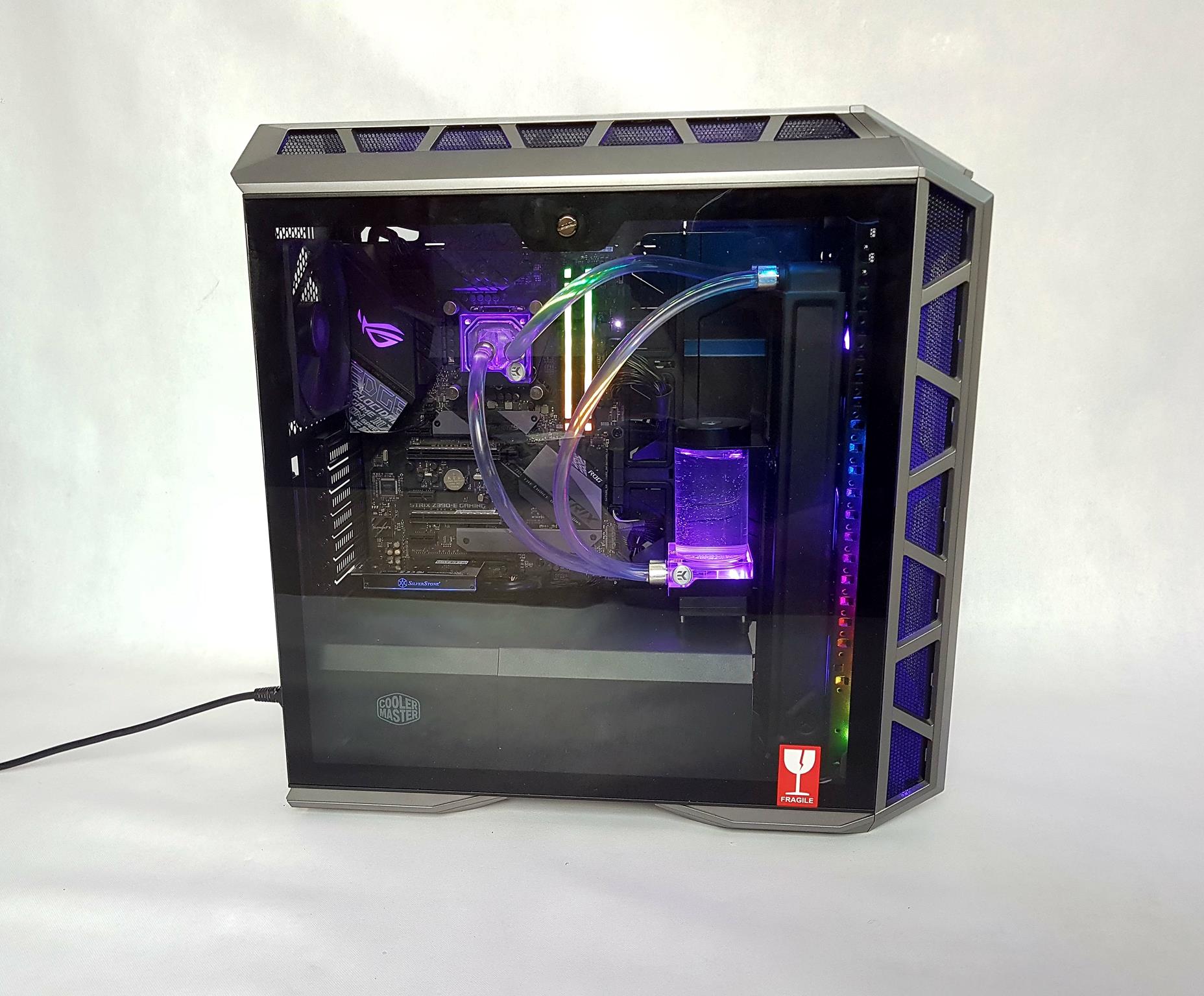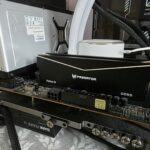
Sabrent Rocket Nano 2TB External-NVMe SSD Review
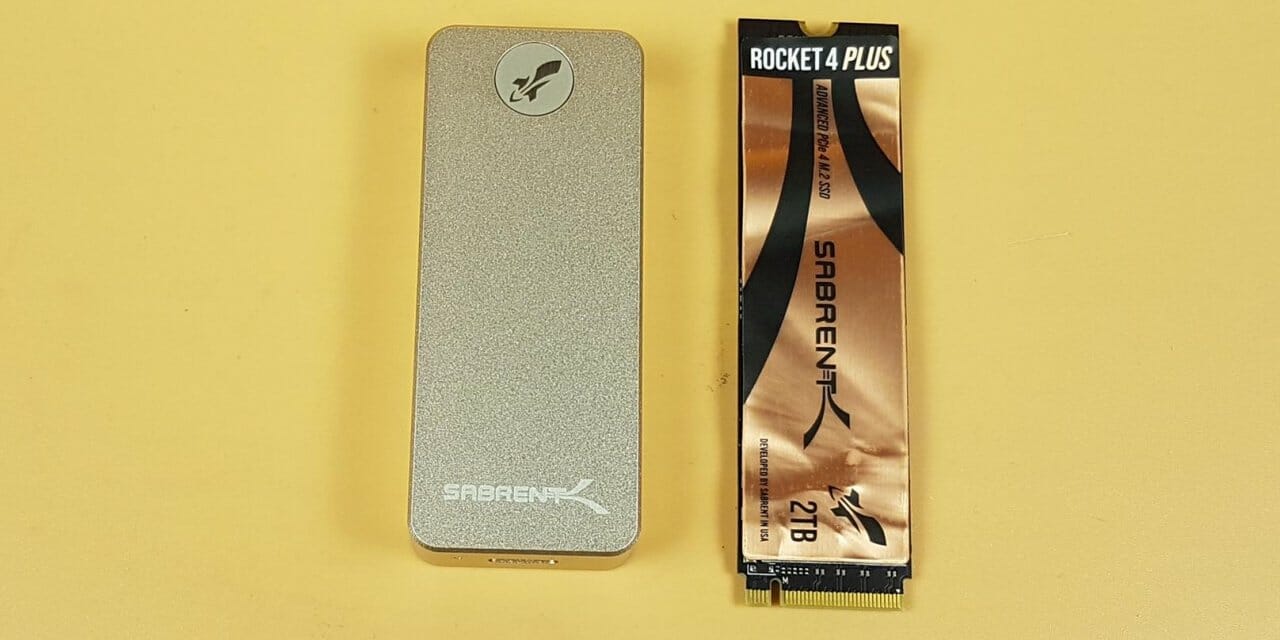
Introduction
The fast portable storage solution is on the boom particularly when we have the Thunderbolt 3 and USB 3.2 Gen 2 base solutions. Today, we will be taking a look at the Sabrent Rocket Nano 2TB Gold drive. This is a portable small form factor, fast storage solution utilizing the USB 3.2 Gen 2 interface to provide up to 10Gbps data transfer rate. The drive weighs around 2 ounces making it light weight and compact (2.75×1.15×0.5 inch) storage media. We have an aluminum alloy sandblasted shell around the main storage drive. The drive is rated for up to 1000 MB/s sequential read speed.
Product: Sabrent Rocket Nano 2TB Gold
Price: $289.99 [At the time of the review]
Specifications
Closer Look
Let’s start with key features of the drive:
- SUPPORTS – Designed to work with both Windows and Mac OS, so you can transfer data between almost any computer in the world. Complies with trim, UASP, and firmware is upgradable.
- PLUG & PLAY – OS independent, and fully bus-powered, No drivers required.
- SPEED – Ultra-fast 10Gbps throughput, low latency, and power-efficient. At up to 1000MB/s,
- DESIGN – Ultra-slim aluminum alloy sandblasted shell. Sleek, Durable, and Convenient. Portable yet durable, ideal for traveling.
- USE – Perfect for a variety of uses including data transfer, high-speed storage, data backup, and more.
The drive is shipped inside a hard shell with key information printed over the leaflet.
The above picture shows the contents of the box.
The Sabrent is using sandblasted aluminum alloy material as the housing for the drive. We have Sabrent branding as can be seen in the picture. The housing material is of high-grade aerospace which is CNC machined. This housing not only adds protection for the SSD but also acts as a heat exchanger. It absorbs the heat from the drive and protects the drive from overheating.
The Rocket Nano series is available in three sizes:
- 512MB
- 1TB
- 2TB
This series is available in 6 colors:
- Gold
- Blue
- Pink
- Red
- Black
- Grey
The SSD is using USB 3.2 Gen 2 protocol over the USB Type C interface. The theoretical throughput for this protocol is 10Gbps. The Rocket Nano series is using UASP (NVM Express) interface with NVMe 1.3 standard for communication. We have a Blue Color LED indicator here as well. It will light up continuously when the drive is connected to the PC and will start blinking under the reading/writing operation.
The underside of the outer shell has a serial number and the model number of the drive.
We have mentioned that this is a compact drive. The above picture shows exactly that. With just 2.2 ounce weight and size of 2.75×1.15×0.5 inches, the Nano serves its purpose well.
Sabrent has provided 2x USB cables in the box:
- One is the USB Type-A to Type-C cable (12”)
- The other is the USB Type-C to Type-C cable (8”)
This would allow the user to connect the drive as per the available USB port in the system though using USB Type-A would reduce the transfer rate. The length of these cables particularly the Type-C to Type-C cable is short. This would be difficult if we are connecting the drive directly with the PC.
The Sabrent Rocket Nano series drives are compatible with Microsoft Windows and MAC OS. They are plug-n-play and don’t need any software. The firmware can be updated using the Control Panel app.
Testing
The following configuration is used:
- Intel i5 11600k
- ASUS ROG Strix Z590-A Gaming WiFi
- XPG SpectriX 16GB 2666MHz DDR4 kit
- DeepCool Castle 240EX White
- Addlink S68 250GB SSD [OS Drive]
- Nvidia GeForce GTX 1080 FE
- be quiet! Straight Power 11 850W Platinum PSU
We have used the following software:
- AS SSD 1.8.5636.37293
- ATTO Disk Benchmark 4.0
- CrystalDiskMark 6
- Anvil Pro Storage Utilities 1.1.0
- DiskBench
Microsoft Windows 10 is used for testing.
We did not have to initialize the drive as it came formatted and ready to use from the factory. 1.86TB out of 2TB is available for the user.
The above picture shows the properties of the drive. It is formatted in exFAT.
The drive is S.M.A.R.T ready. No other software was able to read the temperature of the drive except the DiskInfo. The 53°C is under load thermals.
Test Results
The drive was close to the 1000MB/s mark in sequential read and write which is a good mark as we are almost hitting the rated throughput. The 4K Q1T1 of approximately 40 MB/s is also a good indicator here. The drive packs good figures as compared to the SATA-based HDD and SSDs.
The above graph compares the 4K Random Read and Write using QD32 Threaded.
Next, we run the AS SSD software to test the performance of the drive. Please, note that each stress testing software works differently and there would be variations between software and between two runs even on the same SSD. We have an overall score of 1469 from this test run.
Clearly, we don’t have a comparison here as both SSDs represent different classes but Rocket Nano is pretty good in its class.
The 4K 64 threaded result is nice.
The above is a result of the AS-SSD Copy benchmark. It shows the speed and duration of different workloads giving an idea of the real-world use scenario. Scores are self-explanatory.
The above pictures show the result of the Compression benchmark run from AS-SSD. Ideally, we would not want dips across the length of the line for both read and write operations. We are seeing a good result from the read operation but we observed regular dips on the write operations.
Next, we ran the ATTO Disk Benchmark to test the drive’s performance. We have a maximum read (sequential) speed of 1016 MB/s which is quite impressive. The maximum write speed was 977 MB/s. It is nice to see the SSD hitting the maximum mark on a 10Gbps rate.
Next, we ran the Anvil Storage Utilities benchmark to test the performance of the drive. On the default test size of 1GB, the tested read speed score was 2145.31. The write speed score was 2307.73 with an overall score of 4453.04.
The result is self-explanatory.
Next, we ran the IO – Threaded QD Benchmark in the Anvil. Here are the results.
Next, we ran IO – Threaded operations for the read speed using different queue depths. Here are the results
3DMark Storage Test
3DMark Storage test is relatively a new test bench measuring the gaming only performance of the given drive using three games. It measures the load time of the games, recording the gameplay, saving the game, and moving the game. The overall score is given in the bandwidth and access time.
The Sabrent Rocket 4 Plus 2TB SSD did an average of 138.97MB/s and 194µs.
Real-World Testing
We have used DiskBench in multiple scenarios to check the real-world data transfer rates. Here are the results:
A compressed file of 97GB containing multiple compressed files and folders of different sizes was copied to the Rocket 4 Plus 2TB SSD. The file was then read from the DiskBench. We have a transfer rate of 839.067 MB/s.
Next, we copied the same compressed file from one folder to another on the same drive. The transfer rate is 314.028MB/s.
Next, we copied a folder of 167GB size containing multiple compressed files, sub-folders, and mixed other files. The transfer rate was 284.638MB/s.
Gaming Load Time
We have also calculated the loading time of the game using the Final Fantasy XIV: Shadowbringers Benchmark using High settings. This is meant for the users who would like to store a few games on the external fast storage.
We have a load time of 43.566 secs.
Thermals
We saw a maximum temperature of 57°C at an ambient temperature of 33°C on the Rocket Nano 2TB Plus SSD.
Conclusion
The Sabrent Rocket Nano 2TB is Sabrent’s smallest ever portable drive that can be fit in even the smallest pockets. This is an enthusiast-grade fast-storage solution from the manufacturer based on USB Gen 3.2 Gen 2 on Type-C interface. This series is available in 512MB, 1TB, and 2TB capacities with available colors of black, grey, blue, red, pink, and gold. The drive is rated for up to 1000 MB/s mark.
The outer shell or housing of the drive is made of high-grade aerospace-based aluminum alloy which is sandblasted and CNC machined for perfection. This housing not only adds rigidity to the drive but also absorbs the heat from the drive to protect it from overheating.
Sabrent has provided 2x cables with the drive. One is the USB Type-C to Type-C cable having a length of 8” whereas the second one is the USB Type-A to Type-C cable having a length of 12”. Clearly, the length of these cables is short. The drive was hanging when it was connected to my PC (Rear IO panel of the motherboard). The drive supports Advanced Wear Leveling and Bad Block Management.
We have found that the Sabrent Rocket Nano 2TB was peaking towards the rated 1000 MB/s mark in synthetic benchmark tests with 976 MB/s sequential read and 966.1MB/s sequential write in the Crystal Disk Mark. This is too good a performance from this class drive and clearly makes it faster than the regular 2.5” or 3.5” SATA-based drives. The 4K Q1 score is also healthy for this drive making it quite a compelling offer for a USB 3.2 Gen 2 based category.
The Rocket Nano 2TB SSD is rated at $289.99 at the time of the review. Sabrent is offering 3 years warranty on these drives. The very name of Nano is serving the true purpose of this drive here. We have a lightweight, compact form, high-capacity, fast external storage solution at the disposal of the user which has a good performance in its class. This is further augmented by offering up to 6 colors to choose from.
We are thankful to Sabrent for sending in the Rocket Nano 2TB Gold SSD for review.













